How Ebola changed the world
- Published
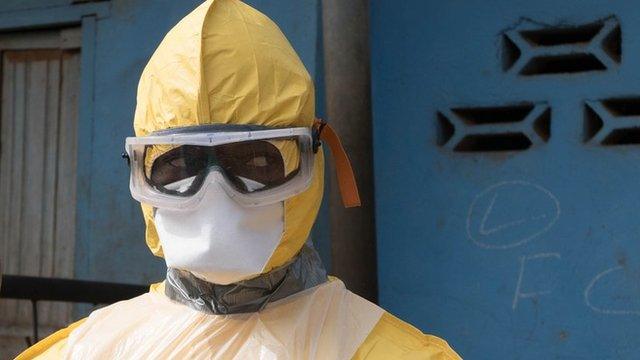
Volunteers come from all walks of life, from teaching to engineering
One year ago the World Health Organization officially declared there was an outbreak of Ebola across Guinea.
The disease had already claimed dozens of lives and was on its way to neighbouring countries. This tiny virus, invisible to the naked eye, went on to kill more than 10,000 people across Guinea, Liberia and Sierra Leone in the 12 months that followed.
Numbers are now going down - but we are still far from zero. And the viral menace has left a permanent mark on the world.
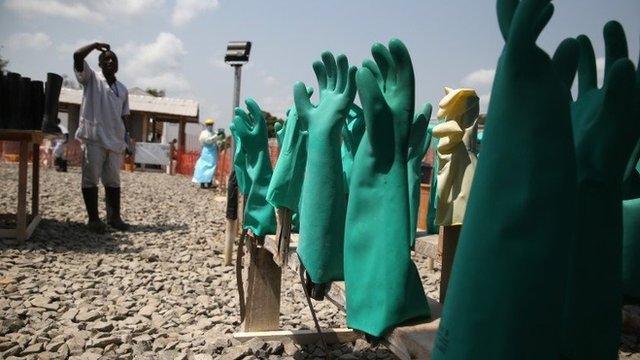
The humans who couldn't be touched
Ebola relies on intimate social interaction to ensure its continued survival - it is passed on through close contact with the bodily fluids of infected individuals.
This means people who care for the sick are most vulnerable to the disease.
The most simple human touch - a handshake or a hug - was quickly discouraged across the three worst affected countries. Liberia lost its traditional finger-snap greeting.
And the fabric of the final goodbye changed too. Traditional burial ceremonies were re-written, mourning practices - such as washing the bodies of the deceased - were banned.
Now a family can expect an Ebola response team to turn up, in full spacesuit-like gear, to take bodies away in the most dignified way possible in the circumstances.
At the height of the outbreak, entire communities were quarantined. And for some in Sierra Leone, Christmas was cancelled.
The long-term impact of these disruptions to deep-seated human traditions is not yet known. Psychologists are concerned that suspicions that other people may harbour the deadly virus will take some time to melt away.
And if they disappear too quickly, this would hamper efforts to stamp out remaining cases.
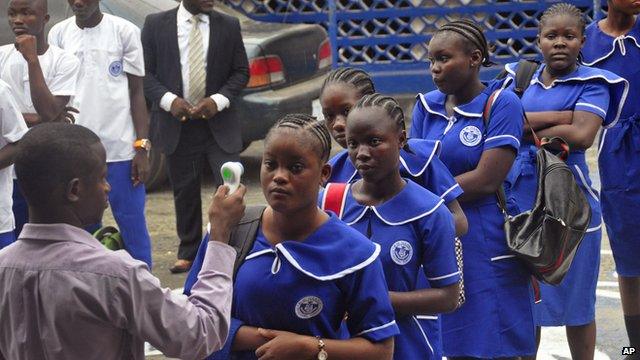
Lost knowledge
As the crisis deepened, Sierra Leone, Liberia and Guinea shut their schools. A whole generation of children will have missed some six months of education. Research by the campaign group Global Business Coalition for Education suggests up to 5 million children were denied classes.
And many are unlikely to return, the report warns.
The risk of children being forced to work also increases as families rely on remaining members to put food and money on the table.
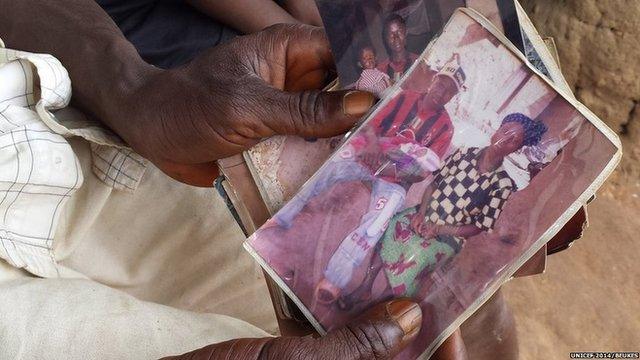
Some of the first known victims of this Ebola outbreak
Viral swat team
Scientists believe the first person to have succumbed to the disease in this outbreak was a two-year-old in a remote part of Guinea. But it took a further three months for the WHO to officially declare an outbreak and five more to announce a public health emergency.
Many thought the world reacted too late.
The WHO admits it was too slow and agrees the organisation needs to change.
Margaret Chan, WHO director-general, said at a rare emergency meeting in January: "The world, including WHO, was too slow to see what was unfolding before us."
Ideas about how to prevent anything similar happening again include the creation of a dedicated fund for emergencies and a rapid-response workforce.
But details are yet to be ironed out - will there be doctors on standby should another outbreak erupt? Will teams be dotted around potential hot-spots to avoid previous delays?

Ebola innovation
Vaccines and drugs often take more than a decade to develop. But an unprecedented decision by the WHO to support the use of relatively untested drugs, followed by a unique collaboration between scientists, public health organisations and drug companies resulted in trials being set up in a matter of months.
Immunisations are already being given on a trial basis in the worst affected countries. Never before has the world seen relatively experimental medicines being used on this scale.
While none has yet been proven to work in large populations, the process has been accelerated at an unheard-of speed.
This calls into question whether medicines for other diseases could be made in a more timely fashion, particularly if academics, politicians and scientists were encouraged to work together in this way again.
And innovation does not stop at treatments. A group of tech volunteers recently came together with Google and MSF to create an Ebola-proof tablet device.
This can be dunked in chlorine to kill the virus, withstand storms and does not rely on a continuous supply of electricity.
There is hope these devices will be used in other difficult settings too - from cholera outbreaks to refugee camps.
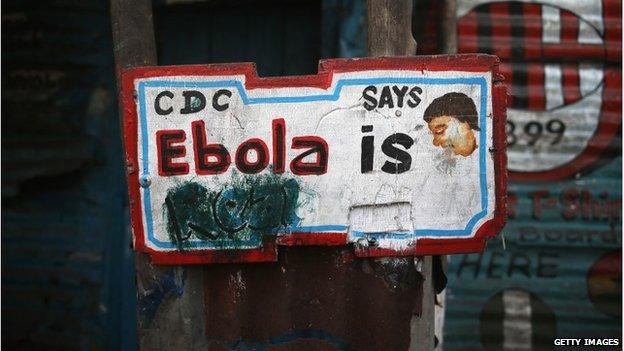
The virus that never goes away
But most agree it was not drugs or fancy innovations that brought numbers down.
Local volunteers going house-to-house to explain the virus, or tirelessly burying bodies in the safest possible way, were crucial to stop the spread.
Communities accepting the realities of the virus and changing their everyday lives, and families allowing their loved ones to be taken to isolated treatment centres all played a strong role.
Weak health systems were bolstered - Liberia only had some 60 doctors to treat its entire population before the outbreak began. But an influx of local volunteers and international teams helped.
Despite these efforts some scientists say there is a chance the virus will never go away. If cases do not get to zero, it could become endemic - part of the fabric of diseases present in countries at a low level.
And other outbreaks are likely.
But the hope is the world will be better prepared and have learnt to pay greater attention, should Ebola, or another disease like it, strike again.